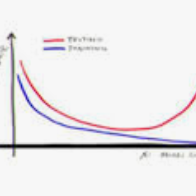A fundamental challenge for machine learning models is generalizing to out-of-distribution (OOD) data, in part due to spurious correlations. To tackle this challenge, we first formalize the OOD generalization problem as constrained optimization, called Disentanglement-constrained Domain Generalization (DDG). We relax this non-trivial constrained optimization to a tractable form with finite-dimensional parameterization and empirical approximation. Then a theoretical analysis of the extent to which the above transformations deviates from the original problem is provided. Based on the transformation, we propose a primal-dual algorithm for joint representation disentanglement and domain generalization. In contrast to traditional approaches based on domain adversarial training and domain labels, DDG jointly learns semantic and variation encoders for disentanglement, enabling flexible manipulation and augmentation on training data. DDG aims to learn intrinsic representations of semantic concepts that are invariant to nuisance factors and generalizable across different domains. Comprehensive experiments on popular benchmarks show that DDG can achieve competitive OOD performance and uncover interpretable salient structures within data.
翻译:机器学习模型的基本挑战正在被概括到分配(OOD)数据,部分是由于虚假的关联性。为了应对这一挑战,我们首先将OOOD一般化问题正式化为限制优化,称为分解-受限制的DDG(DDG) 。我们将这种非三边限制优化放松为可移植的形式,采用有限维参数化和实证近似法。然后,对上述转换在多大程度上偏离了最初的问题进行理论分析。根据这种转变,我们提出了一种初步的双重算法,用于联合代表解析和域域化。与基于域对称培训和域标签的传统方法不同,DDDG共同学习解析语义和变异编码,以便解析,便于灵活地操纵和增强培训数据。DDG旨在了解不同领域难以调和可通用的语义概念的内在表现。关于流行基准的全面实验表明DDG能够取得竞争性的OD性表现和在数据中发现可解释的显著结构。




